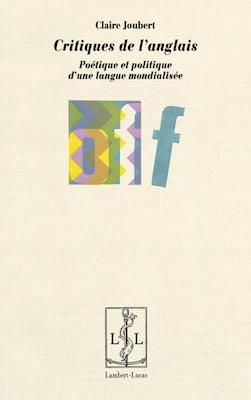On May 30th, to mark the publication of Claire Joubert’s new book Critiques de l’anglais, the Paris Center hosted a discussion surrounding the question of language in academic disciplines, in literary criticism, and in publishing. Joining Joubert was Catherine Bernard, professor of British Literature and Art History at Paris VII, Marc Arabyan, professor of semiotics and linguistics at the University of Limoges, and François Rastier, a semanticist and the director of study at the Centre National de la Recherche Scientifique.
The book and discussion each centered around a focus of the lack of interdisciplinary studies in France, contrasting this to the American tendency of studying individual disciplines by setting them within the context of one another. The book exemplifies this multidisciplinary approach in citing not only English literature, with examples found in James Joyce, Samuel Beckett, and J.M. Coetzee, but also making references in philosophy, translation studies, postcolonial studies and anthropology.
